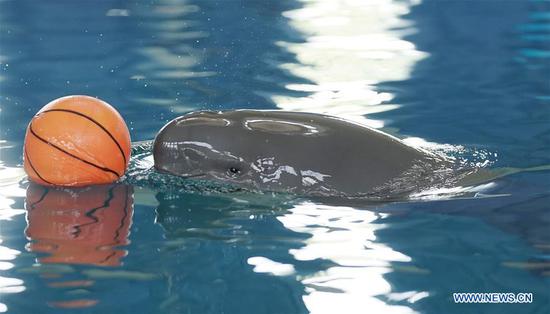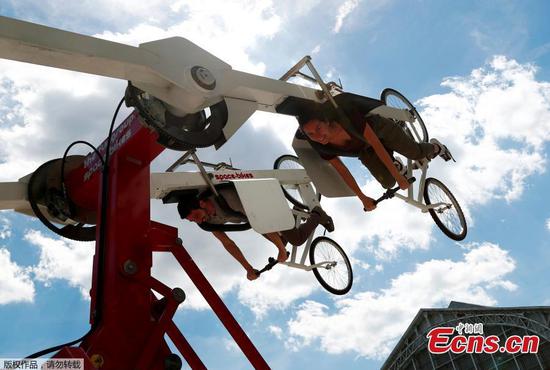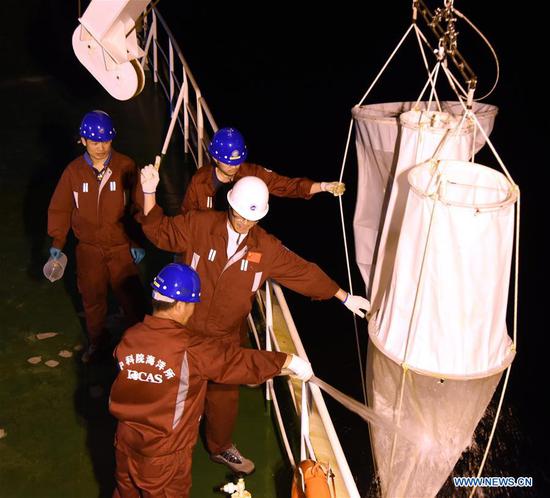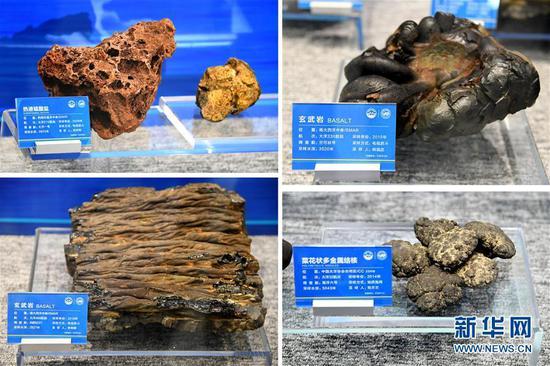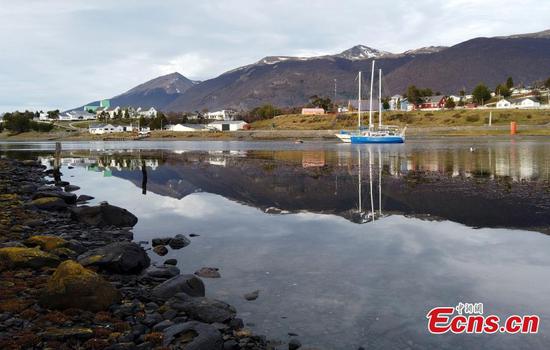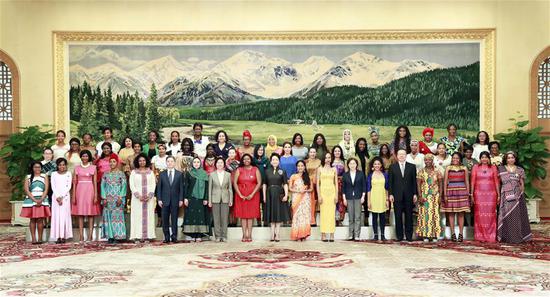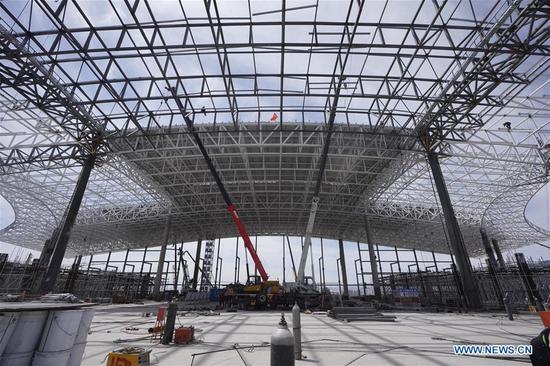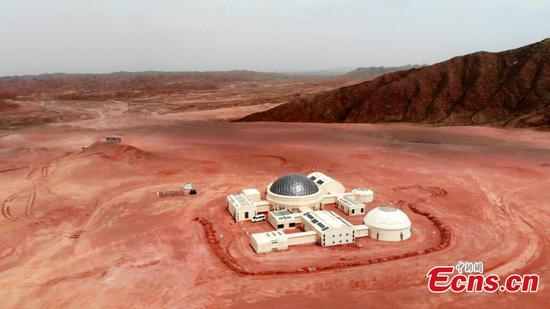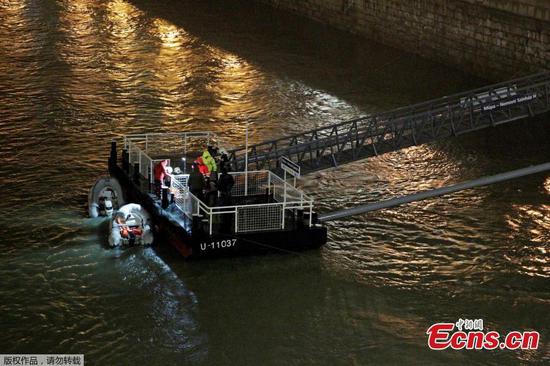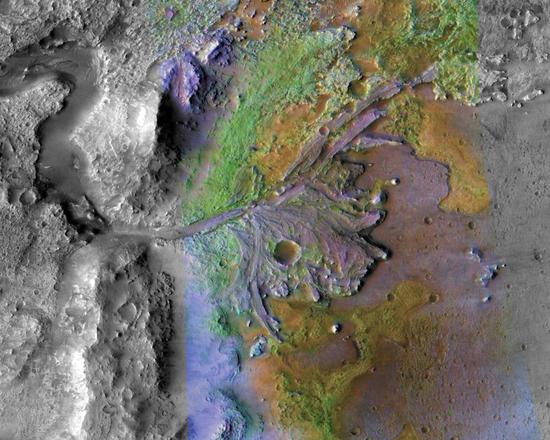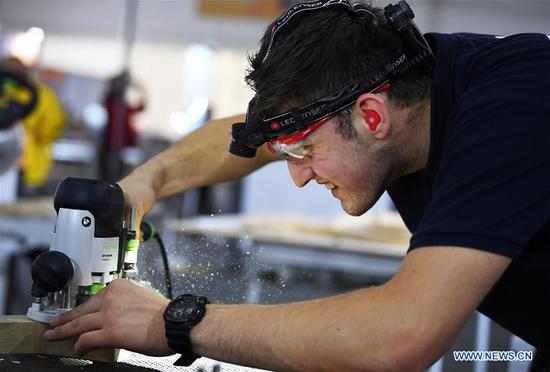
Jin Xin (center), deputy project manager, examines a satellite mounted on a Long March 11 rocket, along with his colleagues at the China Academy of Launch Vehicle Technology in Beijing. (Photo provided to China Daily)
Bright prospect
According to Meng Xiang, chief of international cooperation at the China Academy of Launch Vehicle Technology, the demand for launch services by small rockets like the Long March 11 is considerable in both the domestic and international markets as a result of space companies' race to establish networks of small, low-orbit satellites.
Such satellites, Meng said, are capable of covering most parts of the world if they are lifted from regions with low latitudes, namely those near the equator.
"Therefore, the sea launch, with its unique advantages, will have bright prospects in the market," he said.
Zhang Feiting, an engineer in the Long March 11 project, explained the differences between a land-based launch and a sea mission.
"First, control signals are transmitted via wired communication systems in a land-based launch. In a seaborne task, they are through wireless transmission. Second, the rocket's flight safety is monitored, measured and handled by ground control in land-based operations, while in a maritime mission it's determined and commanded by the rocket itself autonomously," Zhang said. "And third, the land-based launchpad doesn't move, but the maritime platform does, so a rocket to be blasted off at sea is equipped with a special aiming device to cope with tidal movements."
Moreover, a rocket used at sea must be adapted to suit a marine environment that has fog, high moisture and complicated electromagnetic conditions, he said.
A Long March 11 would be transported to the Jiuquan launch center in several parts and assembled at the center before launch. By contrast, for the seaborne mission, the rocket will be assembled in a factory and then transported to the port, Zhang said.
"To prepare the rocket ready for seaborne missions, we have made some modifications for transportation and launch," he added.
Zhang said he hopes the ability to lift off from the sea will enable Long March 11 to offer services to nations involved in the Belt and Road Initiative.
"Many countries that have participated in the initiative are located near the equator. We can sail our rocket and launch platform to their port and mount their satellites on the rocket and then lift them into space. This will be very convenient for them to launch their own satellites," he said.










